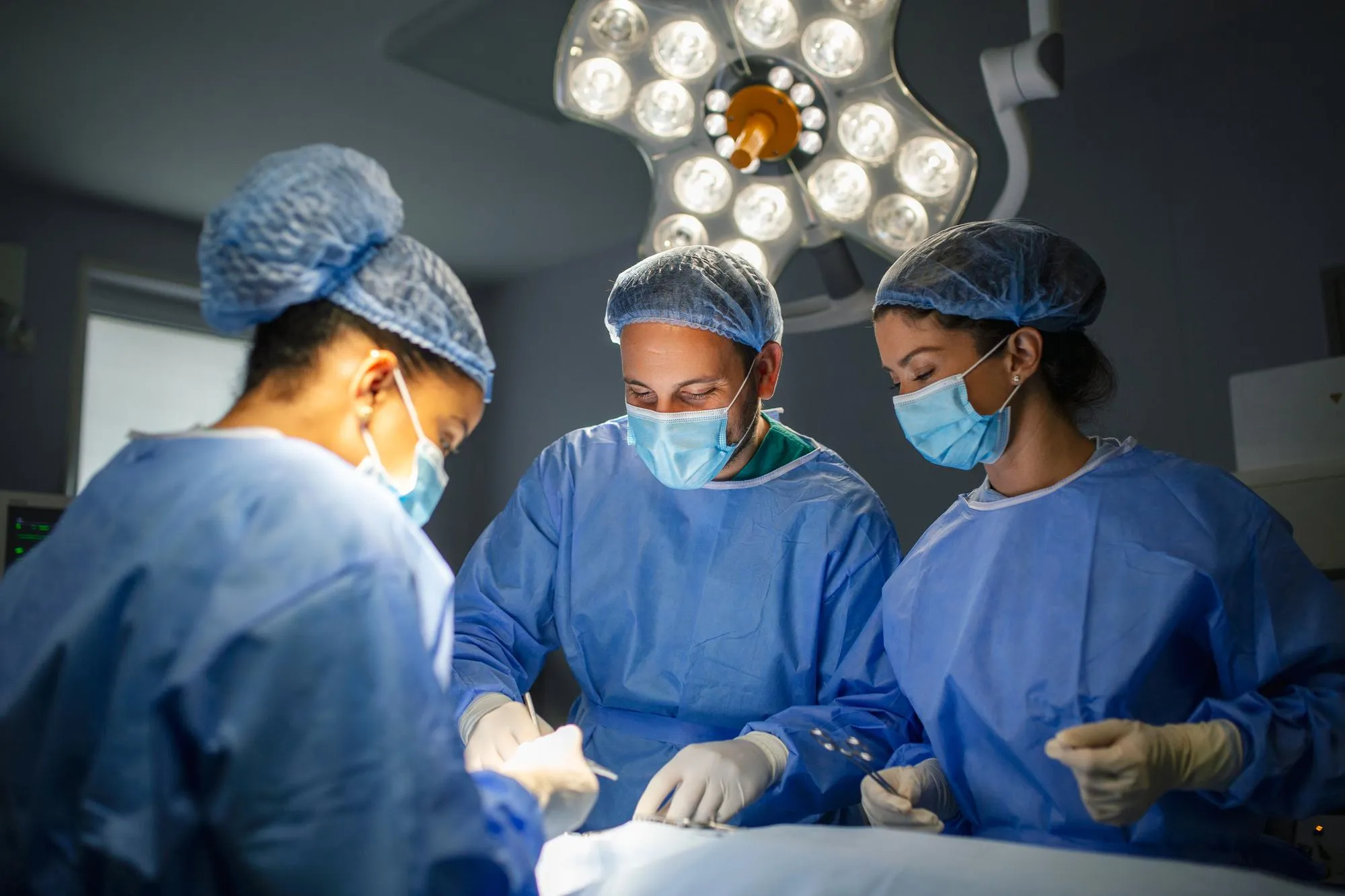Gastric Cancer and Surgical Risks
Gastric cancer continues to be a predominant health risk affecting millions worldwide, and surgery remains a key component in its management. With advancements in surgical interventions, patient outcomes have significantly improved. However, postoperative complications pose a serious threat to recovery and the overall quality of life. Among these, abdominal fluid collections occupy a prominent place due to their potential to significantly influence the prognosis of surgical patients.
A study published in “Acta Chirurgica Belgica” illuminates the types and implications of abdominal fluid collections following gastric cancer surgery, providing invaluable insights for both patients and the medical community.
Study in Focus: Pioneering Research on Postoperative Complications
Background
A team of researchers, led by Piotr Kulig from the Department of Vascular Surgery and Angiology, Brothers of Mercy St. John of God Hospital in Krakow, Poland, sought to scrutinize the incidence, risk factors, and outcomes of abdominal fluid collections post-gastric cancer surgery.
Methods
This comprehensive study incorporated a thorough methodology involving patient data analysis from procedures conducted at the Jagiellonian University Medical College. The research team leveraged logistic models, alongside other statistical tools, to objectively evaluate the prevalence and impact of abdominal abscesses and fluid collections on patients.
Results and Conclusions
The study’s findings underscored a notable incidence of abdominal fluid collections, which led to a deep dive into the implications of such postoperative complications. The research illustrated the strong correlation between abdominal abscesses and delayed patient recovery, amplifying the need for stringent surgical protocols and postoperative management strategies.
Reference DOI and Detailed Analysis
With a DOI of 10.1080/00015458.2019.1615254, this publication serves as a recognized and citable source within the medical literature. The study’s detailed analysis includes:
1. Age and gender distribution of patients encountering fluid collections
2. Incidence rate comparison against other postoperative complications
3. Exploration of factors that increase the odds of developing such complications
4. Drainage methods and treatment outcomes for abscesses and fluid collections
The gravity of understanding and managing postoperative abdominal collections is evident, making this research an invaluable asset for enhancing surgical care standards.
The Team Behind the Study
The study involved noted professionals:
1. Piotr Kulig and Marek Sierzega: Their expertise in vascular surgery and an understanding of the surgical pathology underlined the maneuvering of the research.
2. Szymon Pietruszka, Radosław Pach, Piotr Kołodziejczyk, and Jan Kulig: These clinicians brought substantial surgical prowess to the research, associated with the First Department of Surgery at Jagiellonian University Medical College.
3. Piotr Richter: Representing the same institution, his contribution further strengthened the study’s framework.
Key Takeaways for Medical Practice
As this research has illuminated, recognizing and handling potential abdominal abscesses and fluid collections after gastric cancer surgery are paramount. The implications for medical professionals include:
1. Prioritizing risk assessment protocols for patients undergoing gastrectomy
2. Implementing standardized monitoring for early detection of abdominal fluid collections
3. Improving drainage techniques to minimize patient discomfort and improve outcome efficacy
References for Expanded Study
1. Kulig P, Sierzega M, Pietruszka S, et al. Types and implications of abdominal fluid collections following gastric cancer surgery. Acta Chir Belg. 2020;120(5):315-320. doi:10.1080/00015458.2019.1615254.
The reference list would also typically include other seminal works that provide context and additional insights relating to the topic, however, for this article, only the primary source information has been provided.
Keywords
1. Gastric cancer surgery complications
2. Abdominal abscess post-surgery
3. Postoperative fluid collection
4. Gastrectomy patient outcomes
5. Surgical complication management
The use of these SEO keywords aligns with the critical information revealed through the study and leverages search engine optimization to disseminate the findings and implications to a broader audience.
Concluding Musings
Gastric cancer treatments have come a long way, with surgical innovations at the forefront. Nonetheless, studies such as the one published in “Acta Chirurgica Belgica” are crucial in shedding light on how the journey doesn’t end post-surgery. Clinical vigilance remains pivotal in handling possible complications like abdominal fluid collections. It is evident that research endeavors hold the key to revolutionizing patient care and enhancing recovery pathways in the post-gastric cancer surgery domain.
